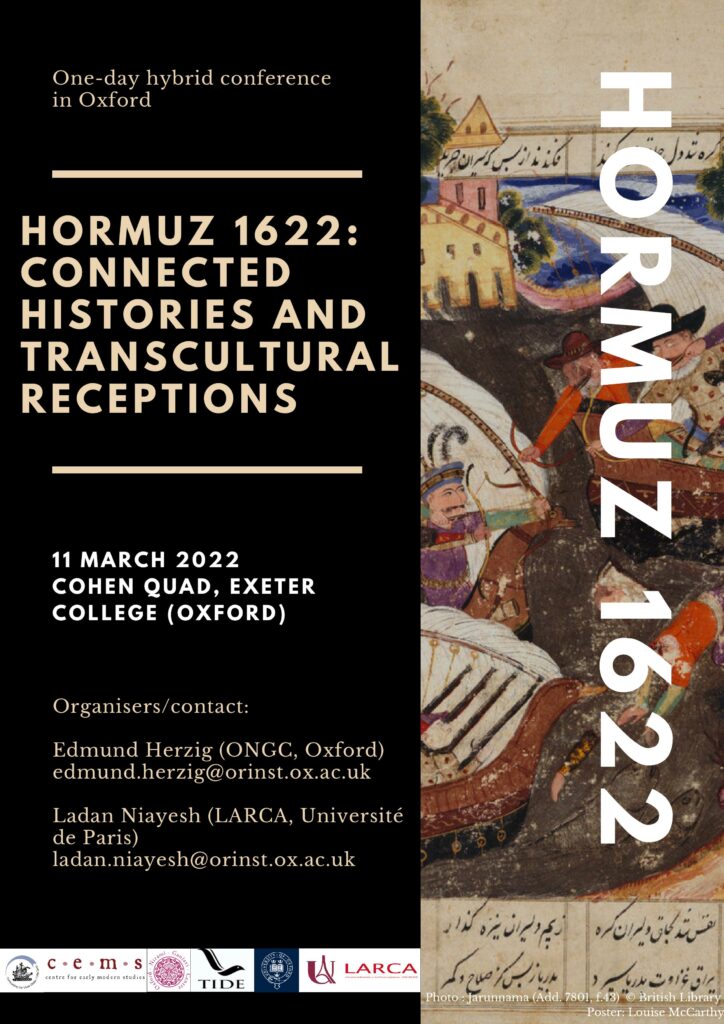
Clear your schedule and join us on 11 March for the one-day hybrid conference, ‘Hormuz 1622: Connected Histories and Transcultural Receptions’! The 1622 capture of Hormuz by the joint forces of Safavid Persia and the British East India Company was a defining moment in the history of Iran’s relationships with Europe. Strategically situated at the mouth of the Persian Gulf, the island kingdom of Hormuz had been conquered by Afonso de Albuquerque in 1507 and made a vassal state to Portugal in 1515, remaining for more than a century thereafter a key military stronghold and a nexus of maritime trade in Portuguese hands. A catalyst of political interactions and a crossroads of economic and cultural interests, the fall of Hormuz offers a fascinating instance of the dynamics of globalization at work in the early modern period, interlocking identities and allegiances, confronting world views, political empires and commercial ambitions, reconfiguring communities and networks, repurposing histories and their receptions.
The conference will run online via Zoom and in-person at Exeter College, Oxford’s Cohen Quad. Please click here to download the conference proceedings. For more information, contact Ladan Niayesh at ladan.niayesh@orinst.ox.ac.uk or Edmund Herzig at edmund.herzig@orinst.ox.ac.uk. Click here to register for in-person attendance, and here to register for online attendance.
‘Hormuz 1622’ benefits from the support of the Oxford Centre for Early Modern Studies and the Oxford Nizami Ganjavi Centre, ERC-TIDE (Oxford), LARCA (CNRS, Université de Paris), and the Hakluyt Society.






